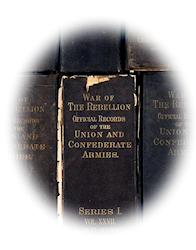Fort MOULTRIE, S. C., November 5, 1860.
Col. H. K. CRAIG,
Chief of Ordnance, U. S. Army, Washington, D.C.:
COLONEL: Your communication of 1st instant, with its inclosure, in reference to placing forty muskets in the hands of the Engineer officer in charge of Fort Sumter as a precautionary measure proper to this time of excitement, is received. My views are asked on two, or rather three points:
1st. On that which forms the condition of the Secretary’s approval of the issue, namely, that I concur in its expediency;
2d. On the “propriety” of placing the arms in the hands of hired men for the purpose indicated; and,
3d. On the “expediency” of doing so.
To the first I reply that I have already said in effect, on my post return for last month, that while I do not apprehend that any attempt upon the United States works here will receive the countenance of the State or city authority, it is by some thought that a tumultuary force may be incited by the feeling of the time, and invited by the present disordered condition of the works to make such an attempt without it, and that this possibility makes it incumbent on me to provide as far I may against it, and forty additional musketeers would then be desirable.
As to the “propriety” of the issue I see no objection. The arms need not be delivered to the men selected by the Engineer officer till the occasion should actually obtain. The workmen in charge of the property are bound on principles of common law to defend it against purloiners, to say nothing of the 96th Article of War, applicable to all “persons whatsoever receiving pay from the United States.”
The “expediency” of the measure is quite another question of less obvious features.
There are one hundred and nine men at Fort Sumter, most of them laborers of foreign nativity, of whom it is prudent to be somewhat suspicious, for I am just informed that on some of them being questioned (as is the wont of the times) on the point of their proclivity in the event of secession, replied to the effect that they were indifferent, and intimated that the largest bribe would determine their action, and they can, you know, discharge themselves of their public obligations at any moment, and thus be free to choose sides.
Now, forty muskets in the hands of the faithful among them might control the rest, but certainly not on a close push from outside. The Engineer officer can, he says, keep the arms beyond the physical possibility of being taken from him by the untrustworthy, and he can cut off all communication peremptorily with citizens. Now, unless some such precaution be taken, this large body of laborers may, in the possible event in question, unrestrainedly deliver up the post and its contents on a bribe or demand. Meanwhile they cannot be removed outside of that isolated island post, which has not a foot of ground beyond the walls of the fort. In this connection I may add that at this post too (Fort Moultrie) we have about fifty laborers of like description with known secession propensities, as they are residents permanently of this quarter.
On the point of expediency, then, I am constrained to say that the only proper precaution—that which has no objection—is to fill these two companies with drilled recruits (say fifty men) at once, and send two companies from Old Point Comfort to occupy respectively Fort Sumter and Castle Pinckney.
I am, colonel, yours respectfully,
JNO. L. GARDNER,
Brevet Colonel, U. S. Army.
[Indorsement.]
ORDNANCE OFFICE, November 8, 1860.
Respectfully submitted to the Secretary of War, with the remark that as the issue of forty muskets, approved by him 31st ultimo, was contingent on the approval of Colonel Gardner, it is probable that the issue has not and will not be made without further orders.
H. K. CRAIG,
Colonel of Ordnance.
